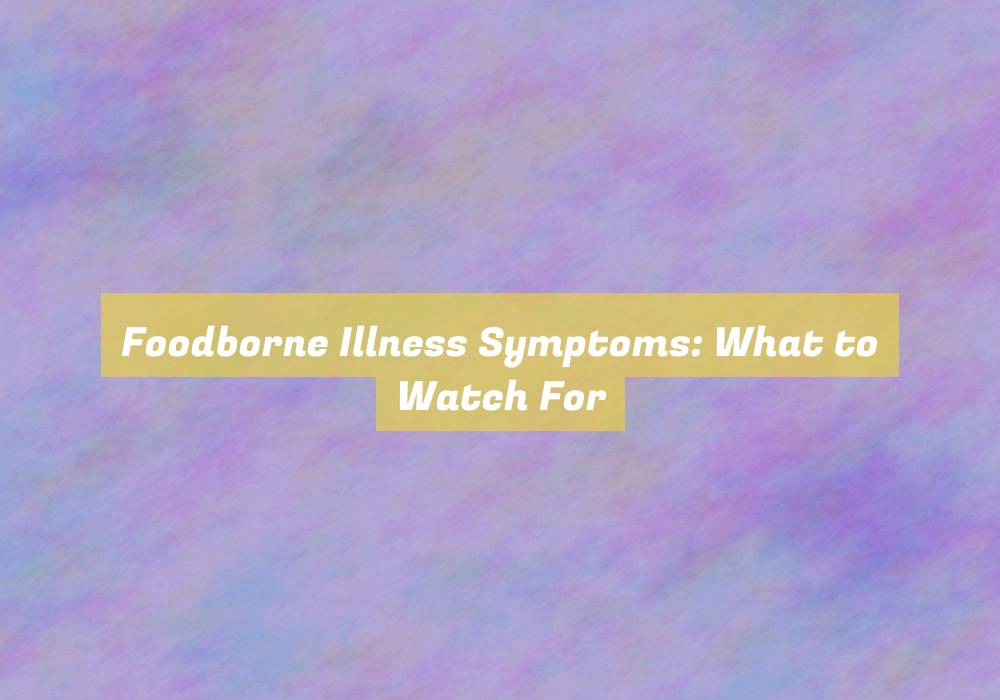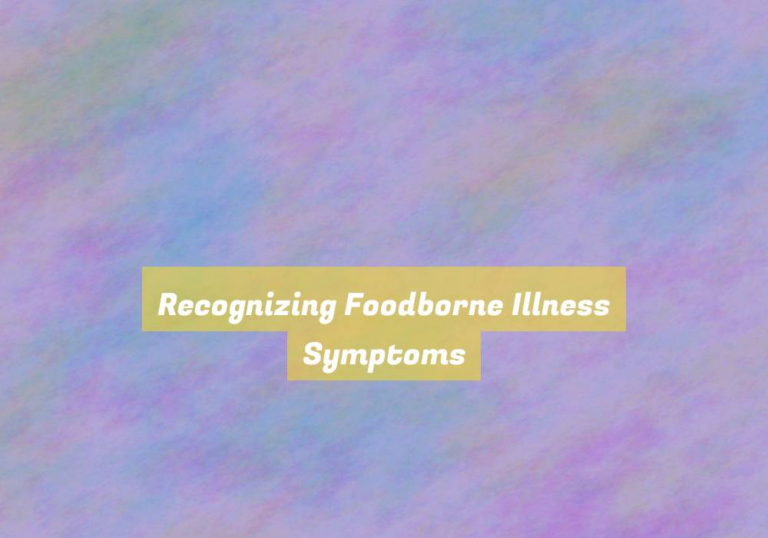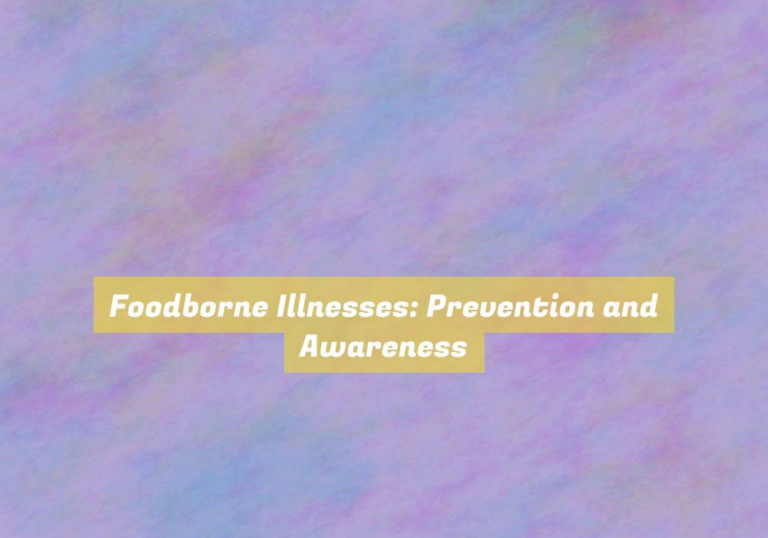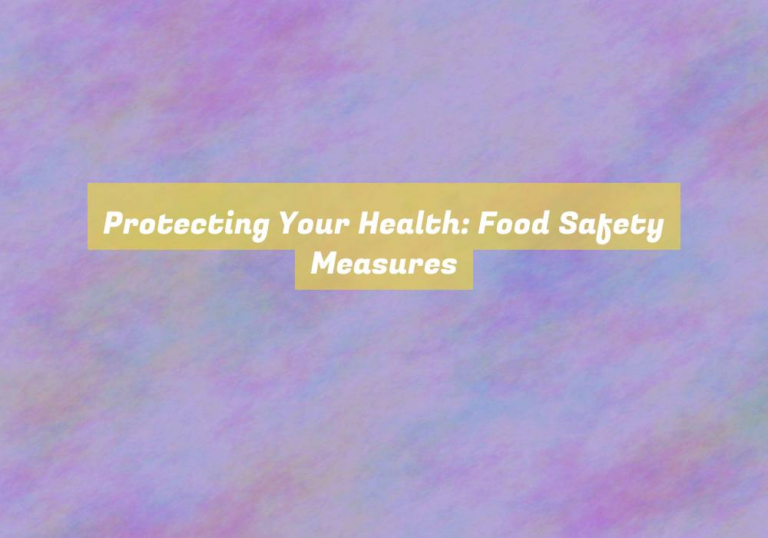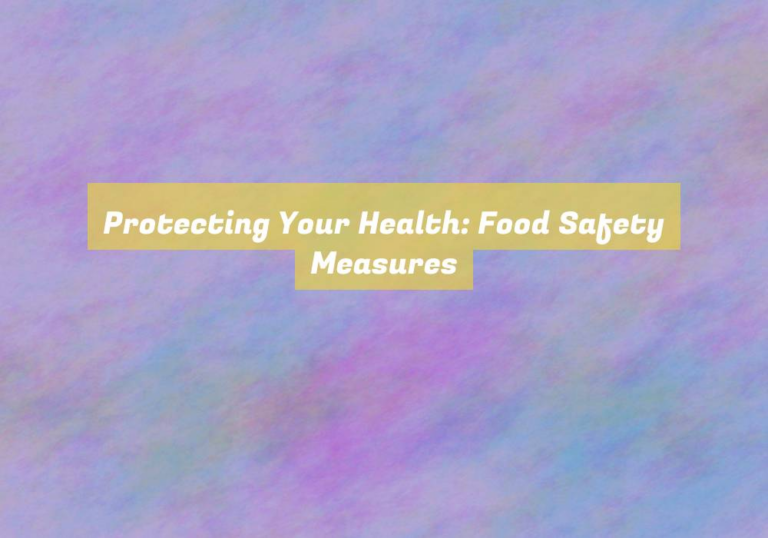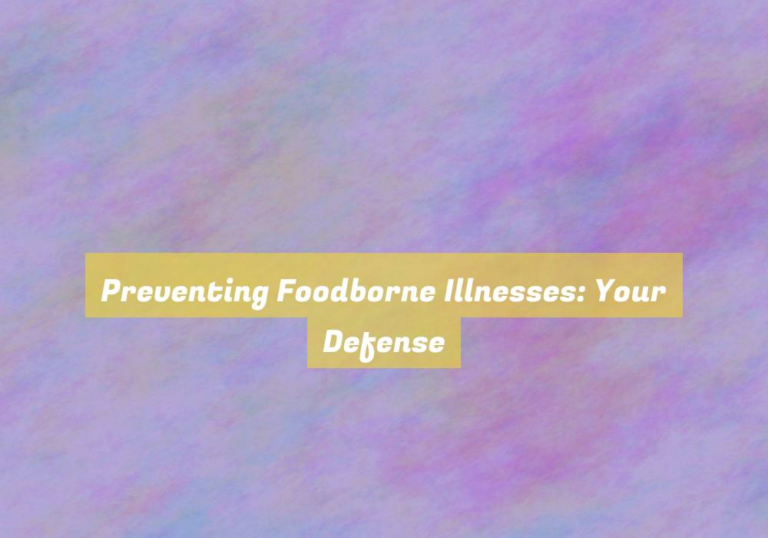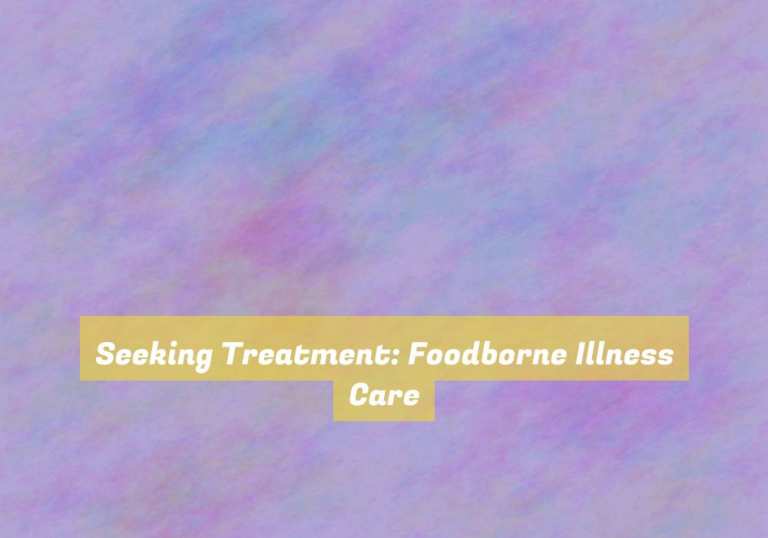Foodborne Illness Symptoms: What to Watch For
Have you ever wondered if that upset stomach or sudden bout of nausea could be related to the food you ate? YouG??re not alone.
Understanding the symptoms of foodborne illness is crucial for your health and well-being. But how do you know if what youG??re experiencing is a result of food poisoning? ItG??s important to be able to recognize the signs and understand the potential severity of the situation.
LetG??s explore the common symptoms and what you should watch for to stay informed and safe.
Recognizing Common Symptoms
Recognizing foodborne illness symptoms is essential for prompt treatment and recovery. When bacteria, viruses, or parasites contaminate food, they can cause various symptoms that often resemble the flu. These can include nausea, vomiting, diarrhea, abdominal pain, fever, and chills. Pay close attention to the timing of these symptoms. If they develop within a few hours to a few days after consuming a particular food, it could indicate a foodborne illness.
Another common symptom to watch for is dehydration. Diarrhea and vomiting can lead to a significant loss of fluids and electrolytes, which can be dangerous if not addressed promptly. Signs of dehydration include excessive thirst, dry mouth, little or no urination, and weakness. If you or someone you know experiences these symptoms after consuming food, seek medical attention.
In addition, pay attention to any unusual or severe symptoms. These may include bloody stools, persistent vomiting, high fever, and signs of neurological issues. These could indicate a more serious foodborne illness that requires immediate medical intervention. Keep a close eye on your symptoms and seek medical help if they worsen or persist.
Understanding Severity Levels
If you notice any of the aforementioned symptoms becoming more severe or persistent, itG??s important to understand the various levels of severity associated with foodborne illnesses.
Mild cases of foodborne illness often present with symptoms such as nausea, vomiting, diarrhea, and mild fever. In these cases, symptoms usually resolve within a few days without medical intervention.
However, moderate cases may involve more frequent vomiting and diarrhea, dehydration, high fever, and persistent symptoms lasting longer than a few days. Seeking medical attention is crucial in moderate cases to prevent worsening of symptoms and complications.
Severe cases of foodborne illness can lead to life-threatening conditions such as severe dehydration, neurological symptoms, organ failure, and prolonged fever. ItG??s imperative to seek immediate medical care if you or someone you know experiences severe symptoms.
Understanding the severity levels of foodborne illnesses can help you make informed decisions about seeking medical treatment and can potentially prevent serious health complications.
Always prioritize your well-being and seek medical help if youG??re unsure about the severity of your symptoms.
Identifying High-Risk Groups
To identify high-risk groups for foodborne illnesses, consider factors such as age, immune system function, and underlying health conditions.
Infants and young children are at a higher risk due to their developing immune systems and smaller bodies, which are more susceptible to dehydration from vomiting and diarrhea.
Elderly individuals may have weakened immune systems and decreased stomach acid production, making them more vulnerable to harmful bacteria.
Those with compromised immune systems, such as cancer patients undergoing treatment or individuals with HIV/AIDS, are also at a higher risk of severe illness from foodborne pathogens.
Additionally, individuals with underlying health conditions like diabetes, liver disease, or kidney disease may have a harder time fighting off foodborne infections.
Pregnant women should also be cautious as their immune systems undergo changes to accommodate the growing fetus, which can make them more susceptible to certain foodborne illnesses.
ItG??s important for these high-risk groups to take extra precautions when handling and consuming food to reduce the likelihood of contracting a foodborne illness.
Seeking Timely Medical Attention
When experiencing symptoms of foodborne illness, promptly seek medical attention to ensure proper diagnosis and treatment, especially if youG??re in one of the high-risk groups previously mentioned. Seeking timely medical attention is crucial in managing foodborne illnesses. If you experience severe symptoms such as high fever, bloody stools, dehydration, prolonged vomiting, or neurological symptoms, itG??s imperative to seek immediate medical care. Prompt intervention can prevent complications and ensure a faster recovery.
Additionally, if you belong to a high-risk group, including young children, the elderly, pregnant women, and individuals with compromised immune systems, itG??s essential to be proactive in seeking medical attention. These groups are more susceptible to severe complications from foodborne illnesses, making early medical intervention even more critical.
Delaying medical attention can prolong the illness and increase the risk of serious health consequences. Remember that timely medical care not only aids in your recovery but also helps prevent the spread of foodborne illnesses to others. Therefore, prioritize seeking medical attention as soon as symptoms of foodborne illness arise.
Conclusion
So, remember to pay attention to any symptoms of foodborne illness, such as nausea, vomiting, diarrhea, and fever.
If you start experiencing these symptoms, especially if youG??re in a high-risk group, donG??t hesitate to seek medical attention.
ItG??s important to recognize the severity of your symptoms and act quickly to prevent any further complications.
Stay safe and take care of your health!

